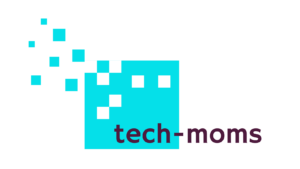The education landscape has undergone significant changes over the past few years. With the growing focus on personalized learning, traditional modes of education are being reevaluated and reshaped to meet the evolving needs of today’s students. One innovative approach that is gaining prominence is competency-based education (CBE), which offers a flexible and comprehensive learning experience tailored to individual student needs. At Newlane University, we understand the importance of providing students with an education approach that helps them develop and refine their skills at their own pace.
The Shift from Traditional Learning
The traditional education system primarily relies on a time-based model, where students progress through their academic journey according to a predetermined schedule. They are expected to learn at the same pace as their peers, regardless of their individual learning needs and abilities. This method often results in students being either under-challenged or overwhelmed, and it may not be the most effective approach to every individual’s learning experience.
Competency-based education (CBE) offers a viable alternative to this traditional model, focusing on students mastering a certain skill or competency before progressing to the next level. In a CBE framework, learning becomes more personalized, enabling students to fully develop their abilities in various subjects and find success in their education.
Customized Learning Paths
A key component of competency-based education is the ability for students to customize their learning experience, catering to their unique skills and interests. Rather than being constrained by a fixed curriculum, students can choose from a wide array of subjects, enabling them to specialize in their chosen disciplines. This results in a more efficient and enjoyable learning experience, as students invest their energy in subjects they are genuinely passionate about.
Furthermore, the customized learning paths offered in a CBE environment facilitate a deeper understanding of the subject matter. Students can learn from resources tailored to their specific needs, ensuring that they are fully prepared to tackle real-world problems with confidence. As a result, the CBE model prepares students for success not just in the classroom but also in their future careers.
Technology-Driven Learning
Technology plays a significant role in enabling the competency-based education model. Through online learning platforms, academic resources, and digital assessment tools, students can access and demonstrate their learning progress on a global scale. Digital learning platforms offer students the flexibility to learn anytime and anywhere, eliminating the need for physical constraints such as school hours or geographical location. Moreover, technology caters to a diverse range of learning styles, ensuring that every student has access to an optimal learning environment.
For educators, technology-driven learning means that they can efficiently monitor and assess their students’ progress. With better insights into each learner’s strengths and weaknesses, teachers can fine-tune their instruction efforts, resulting in a more effective and personalized educational experience. Consequently, technology’s role in competency-based education leads to a better overall learning experience for both students and educators.
Assessment and Accreditation
The competency-based education model requires a shift in how student assessment and accreditation are handled. Rather than relying on a cumulative grade point average or traditional testing methods, CBE assessments focus on a student’s demonstrated mastery of specific competencies. This approach ensures that the students are truly proficient in the skills they’ve learned rather than just being able to memorize information for a test.
Institutions offering competency-based programs, such as Newlane University, typically work with accreditation bodies to develop standards and guidelines for successful program implementation. These accreditation agencies ensure that the competency-based program’s rigor and learning outcomes meet the required quality standards, providing students with confidence in the value of their CBE-based education.
Empowering the Workforce of Tomorrow
Competency-based education’s potential extends well beyond the classroom. By providing students with the skills and knowledge tailored to their unique abilities and interests, they become fully prepared to succeed in the modern workplace. In a rapidly evolving job market, employers are beginning to prioritize candidates with relevant competencies and real-world experiences rather than simply looking at traditional qualifications, such as degrees or cumulative GPAs.
As more students graduate from competency-based education programs and transition into the workforce, companies are benefiting from this influx of highly skilled and capable candidates. The CBE model, by focusing on the individual learner’s needs and capabilities, is a vital tool in shaping the workforce of tomorrow.
Conclusion
The competency-based education model represents an innovative, student-centered approach to learning that is transforming education worldwide. With its emphasis on customized learning paths, technology-driven learning, and rigorous assessments, CBE provides an effective framework for students to develop the skills they need for professional success. At Newlane University, we are proud to offer a US-accredited competency-based education service that is designed to help students reach their full potential and excel in their chosen careers.
If you’re interested in learning more about how Newlane University’s accredited competency-based education can help you, get in touch with our team today to discuss your unique educational goals.





